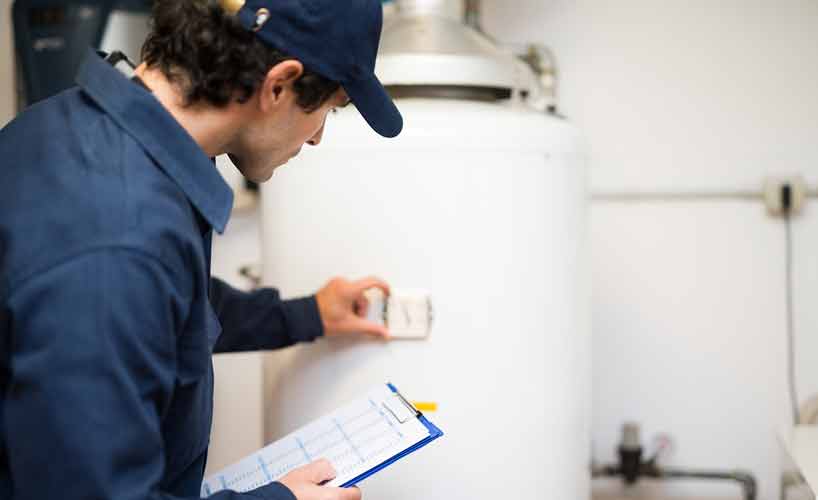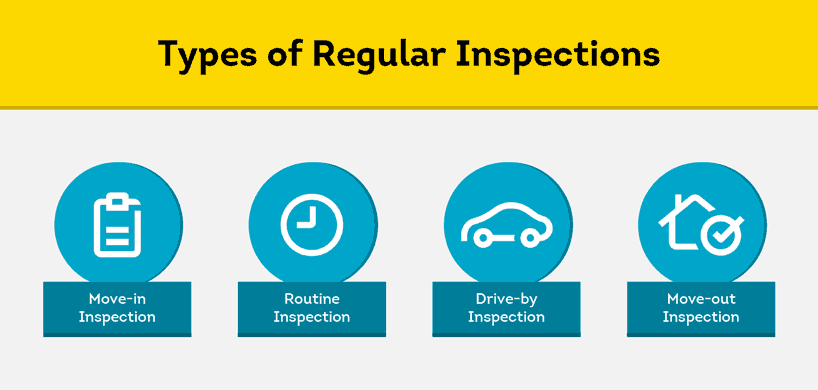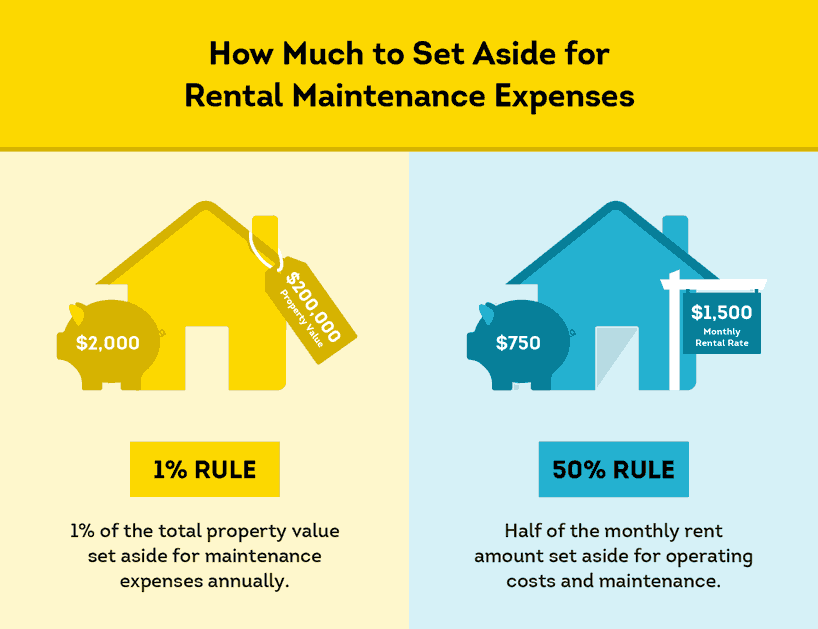Disclosure:
This content, except as otherwise indicated or stated on this site, is the property of TransUnion Rental Screening Solutions, Inc. This content is for educational purposes and for convenience only. Trademarks used are the property of their respective owners, and no endorsement or affiliation is implied. The information presented in this content is “as is” without warranties of any kind, and specifically is not represented to be complete and does not constitute legal advice, and is subject to change without notice. You are encouraged to check these terms from time to time for changes, and by accessing this site you agree to these terms and all terms listed. Laws and regulations may vary by state and locality. Consult your own counsel if you have legal questions related to your rental property practices and processes.
How to Properly Maintain Your Rental Property
One of the biggest landlord responsibilities facing any property owner is rental maintenance. In fact, in a national survey conducted by SmartMove, rental maintenance was ranked as the third biggest “pain point” for landlords after loss in rental income and uncooperative tenants.
That’s not surprising. Rental property maintenance requires year-round vigilance, representing a significant amount of time and money. However, landlords can avoid the “pain points” if they follow some simple rules, stay organized and budget accordingly. Below we talk about some of the strategies for managing rental maintenance.
Regular Maintenance
Some rental maintenance issues, such as a leaky faucet, often can’t be anticipated or avoided. Other issues can be addressed before they become serious problems by following a regular maintenance schedule. These are the items that should be checked on a regular basis, whether weekly, monthly or annually, such as a yearly furnace inspection. Regular maintenance isn’t just about avoiding costly repairs but ensuring a pleasant living environment for tenants.

The rental property maintenance checklist below is not meant to be exhaustive. Each landlord will need to tailor a regular rental maintenance schedule based on his or her property. Here are some examples of items that many good landlords do regularly.
- Check for leaks, especially following strong rainstorms or after significant snowmelt. Water damage is the enemy of every landlord.
- Replace air filters frequently.
- Test smoke and carbon monoxide detectors regularly.
- Check for pests quarterly if not monthly.
- Re-caulk showers and bathtubs to prevent mold and leaks.
- Tighten any handles, knobs, locks, faucets, etc.
- Check fire extinguishers.
- Flush water heater.
- Clean gutters.
- Trim or remove trees on the property threatening power lines or structures.
Landlords should also create rental maintenance schedules for bigger ticket projects, or capital expenditures, such as replacing carpets or repainting walls. The schedule will depend on the general wear-and-tear on each individual unit, but professional property managers recommend doing these sorts of projects (i.e., interior painting, carpet replacement) about every three years unless needed sooner.

Regular Inspections
One of the keys to maintaining your unit is to conduct rental property inspections on a regular basis. There are four types of inspections landlords can do to help ensure their properties stay in tiptop shape.
- Move-in Inspection: This walk-through inspection is typically done with the tenant. This provides an opportunity for the tenant to identify any concerns and for the landlord to document the condition of the property when it was turned over.
- Routine Inspection: Landlords should schedule regular inspections of the property with the tenant, ideally on a quarterly basis. A landlord should provide prior notification before entering the property; often the terms of the lease will specify the particulars regarding these visits, or local law will. This is an opportunity for the landlord to identify maintenance issues or for the tenant to discuss any problems such as that leaky faucet.
- Drive-by Inspection: Routinely stopping by the unit to observe its outside condition can help spot issues such as the unauthorized presence of a pet.
- Move-out Inspection: As the name implies, this inspection comes when the tenant moves out. This inspection is not only the time to identify any damage a tenant may have caused but for the landlord to note what normal wear-and-tear repairs or maintenance issues may need to be addressed before the unit is rented out again.

Rental Property Maintenance Expenses
Determining how much money to allocate for rental property maintenance expenses can be tricky. Many professional property managers use what they call the 1% Rule: One percent of the total property value should be set aside to address rental maintenance expenses. Following this rule, a rental property valued at $200,000 would have a $2,000 annual budget line item for maintenance expenses.
Keep in mind this is only a rule of thumb. Factors such as the age of the property or cost of living in the area may require a larger or smaller annual budget for rental property maintenance expenses.
To account for large capital expenditures, such as a new roof, you may want to apply a different formula: the 50% Rule. This model suggests that half of all rental property income should be used for operating costs, which includes not only rental maintenance and repairs but also things like taxes, insurance, fixed fees and an escrow account for big-ticket expenses like a new roof. That means a landlord who rents a property for $1,500 per month would squirrel away $750 for rental maintenance and operating expenses.
To DIY or Hire A Professional?
A rental maintenance budget will also depend on whether a landlord opts to personally do most of the maintenance or hire the service to a contractor(s). The landlord should do an honest assessment of his or her skills and availability before making this decision. While it is certainly tempting to save money and go the do-it-yourself (DIY) route on rental maintenance, a landlord may find that his or her time is better spent on other parts of the rental management business.
Keep in mind that rental maintenance requires a varied skill set, from plumbing to electrical, and the ability to troubleshoot problems. Service calls can come at any time day or night. A landlord who chooses to do rental maintenance directly should be prepared for all eventualities.
Landlords should also remember that a tenant doesn’t care how much money a landlord might save in expenses by doing the work himself or herself. One of the leading causes of tenant turnover cited by renters as to why they didn’t renew a lease is poor maintenance. Maintenance should also be completed as soon as possible, as some tenants might try to make the necessary repairs themselves, which could cause additional problems, or even withhold rental until the issue is resolved. And renters could even call local housing authorities to inspect a property they feel is poorly maintained and unsafe.
There are plenty of options out there for landlords who need maintenance help. Websites like Thumbtack match professionals to those in need of services such as carpet installation and interior painting. Other companies like American Home Shield offer warranties on major appliances and systems such as furnaces and HVAC for a monthly paid subscription. Each service call is then charged a flat fee, with a guarantee to either repair or replace the item under warranty.

Doing Rental Maintenance Helps to Have Happy Tenants
Andrew Syrios, a real estate investor in Kansas City whose company owns more than 500 units in four states, maintains that good property management boils down to good rental maintenance.
As a way to keep your good tenants happy, landlords should consider it very important to conduct routine maintenance and inspections, as well as make timely repairs when needed. “Maintenance is the face of your company, and good maintenance is the best form of tenant retention there is,” he writes on BiggerPockets. “Many tenants are used to poor quality service, so if they come to your place and get good service, it substantially increases the chance that they will want to continue renting from you.”
Be sure to follow up on maintenance calls, Syrios advises, with perhaps a short survey or phone call to determine if the tenant is satisfied with the work. It is also a good idea to document any service calls with notes and pictures before and after any maintenance work.
Good rental maintenance should really start with the tenant screening process. A responsible renter, with a good credit history and strong references, is more likely to take care of a property. That’s where TransUnion SmartMove can really pay off with its comprehensive screening process. SmartMove reports include a credit report for renters, a tenant background check report, and renter eviction history.
Follow these suggestions and rental maintenance doesn’t have to a “pain point” for landlords but a point of pride and a way to retain good tenants.
Know your applicant.
Additional Disclosure:
The information posted to this blog was accurate at the time it was initially published. We do not continue to guarantee the accuracy or completeness of the information provided. The information contained in the TransUnion Rental Screening Services, Inc. blog is provided for educational purposes only and does not constitute legal or financial advice. You should consult your own attorney or financial adviser regarding your particular situation. For complete details of any product mentioned, visit www.transunion.com. This site is governed by the TransUnion Rental Screening Privacy Policy Privacy Notice located at TransUnion Rental Screening Solutions, Inc. Privacy Notice | TransUnion.



